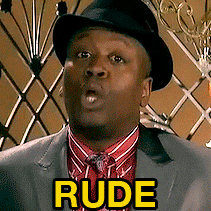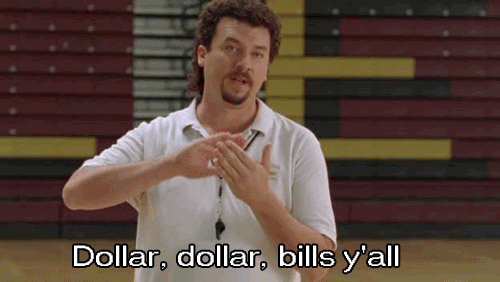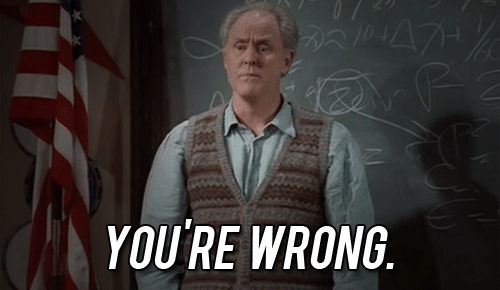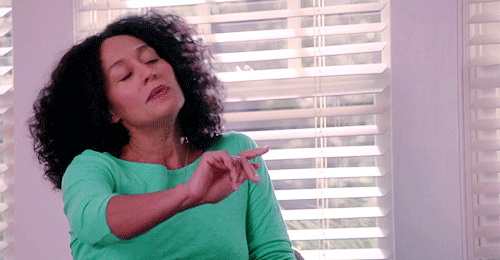You’re at a party when the inevitable happens. The people around you discuss their fields of study when someone asks, “What’s your major?” When you reply that you’re in the education program, they respond, “Well, you know what they say: those who can’t do…” The road to teacher licensure may be paved with many wonderful experiences, but you’ll also have to navigate infuriating situations like this. If you dream of becoming a teacher, expect to receive a few uncomfortable comments from people who just don’t understand your passion.
1. “Oh… you’re an education major.”

Excuse you. The less-than flattering inflection that accompanies this phrase strikes a nerve with education majors who work well into the night to perfect their lesson plans. “It’s obnoxious that their first thought is sarcastic instead of ‘Oh wow, we need more good teachers,’” said aspiring elementary and special education teacher Sheila Lowery, a junior at Luther College. Let’s not look down on the major or minor that ensures your future children will learn how to read someday. Just saying.
2. “You’re never going to make any money.”

“Making a connection with a student and helping them to realize their true potential is worth more than any monetary gain,” said Liz Gavin, a sophomore who currently studies elementary education at the University of Iowa. She’s right. Educators work to make a difference, not a bonus. While a sizable paycheck might be nice, there’s more to life than money. We choose this career path because of the incredible reward. No amount of money can contend with the sheer joy of watching your students grow and develop a passion for learning. Think of it like that old MasterCard commercial:
Outfit: $160
Classroom decorations: $40
Correcting pens: $2
Helping Jimmy finally understand fractions: Priceless.
3. “It can’t be that hard, you’re just going back to school.”

An unfortunately large number of people seem to believe that because they were a student, they suddenly understand everything about teaching. However, the world looks very different from the other side of the desk. In addition to designing curriculum, lesson plans, tests, handouts, running a class and catering to every student’s needs, we also undergo a rigorous process before we can even set foot in a classroom. Remember, we need to take four years of preparatory courses in college, gain admittance into our school’s education program, complete a number of practicums and pass licensure tests. So yeah, it’s a little more complicated than “just going back to school.”
4. “That’s not a real job.”

How does educating the youth of America not qualify as “a real job”? Think of how much work and preparation goes into giving a presentation to your boss. Now imagine doing that every day while grading papers, and helping students one-on-one, writing handouts and… you get the point. Being a teacher requires a lot of behind-the-scenes work. Masaki Nakamura, a senior at Waseda University who has experience teaching in countries like Swaziland and India, said it best: “I believe the teacher is one of the most important jobs. The teacher is a person who broadens child’s world.”
5. “You’ve got it so easy, you even get summers off!”

When presented with this phrase, Nakamura promptly replied, “If you think so, why don’t you try to be a teacher?” Running a classroom of your own might be a lot of things, but “easy” doesn’t fall under that category. We work tirelessly during the school year and summers aren’t always a walk in the park for us either. “Summers are great. The part where I’m unemployed for three months is my favorite part. Pursuing higher and continuing education, maintaining my teaching certificate, as well as finding and juggling a second job is a breeze,” said Luther College senior and aspiring English teacher Johnathon Boyle.
6. “So do you just play with kids all day?”

“No, we are teaching our students some of the most important life skills such as how to read, write and count, skills they will use every day for the rest of their lives,” said elementary education major Molly Johnston, a junior at Gustavus Adolphus College. You know how you feel exhausted after a few hours of babysitting a rambunctious six year-old? Lengthen your shift by a couple more hours and take on anywhere from 15 to 20 more kids. Oh, and try to teach them how to read, write, add and subtract. And make sure that your lessons meet state standards while still keeping those six year-olds engaged. Once you’ve done all that, you’ll need to prepare for conferences, where you’ll discuss Sammy’s behavioral problems with her unsympathetic parents. Still sound like you’re “just playing with kids all day”?
7. “But you’re so smart!”

Do you want a moron to teach your kids? No? Then you shouldn’t be surprised that most teachers qualify as very intelligent people. The people who go on to become the greatest mathematicians, authors and scientists of the day begin as students. The profession of teaching claims some of the greatest minds our world has ever known. Your history teacher probably taught you that Socrates educated Plato, who in turn instructed Aristotle. You wouldn’t call them dumb, right? Maybe we could have explored other options within our discipline, but we’ve chosen to focus on sharing our passion with others. Of course, having the mental capacity to share said passion requires—you guessed it—smarts.
8. “You’re too nice to run a classroom.”

Right, because “nice” people cannot effectively lead a classroom. Of all the misconceptions surrounding the field of education, this qualifies among the most bizarre. Don’t you want your children’s educators to be kind people? Soft-spoken introverts make fabulous instructors, as do the more outgoing extroverts—it all depends on the character of the person leading the classroom. The fact of someone being a nice person doesn’t mean they cannot discipline their students and manage their classroom.
9. “Don’t be that teacher who…”

There’s a reason behind every choice an educator makes, so when you start to tell us, “Don’t be that teacher who gives a lot of homework,” or “Don’t be that teacher who has a seating chart,” you prove that you don’t really understand everything that we do. With that said, yes, even seating charts have a purpose. You might not realize that assigned seats signify a classroom management tool that helps eliminate distractions in your child’s learning environment, but we do. The world holds teachers to high standards, so we must make certain pedagogical decisions to meet them. We know what we’re doing, so don’t be that person who thinks they know better.
10. “Those who can’t do, teach.”

Use this phrase if you really want to upset the person charged with educating your children. How do you think that the people who “do” got started? “Doctors don’t become doctors without teachers and engineers don’t become engineers without teachers. We are the ones building the foundation of the future, yet we receive the least amount of respect for doing it. But teachers know the impact they have on students’ lives,” said aspiring English teacher and Megan Broadbent, a junior at Luther College. Do everyone a favor and never let this sentence escape your lips.



















